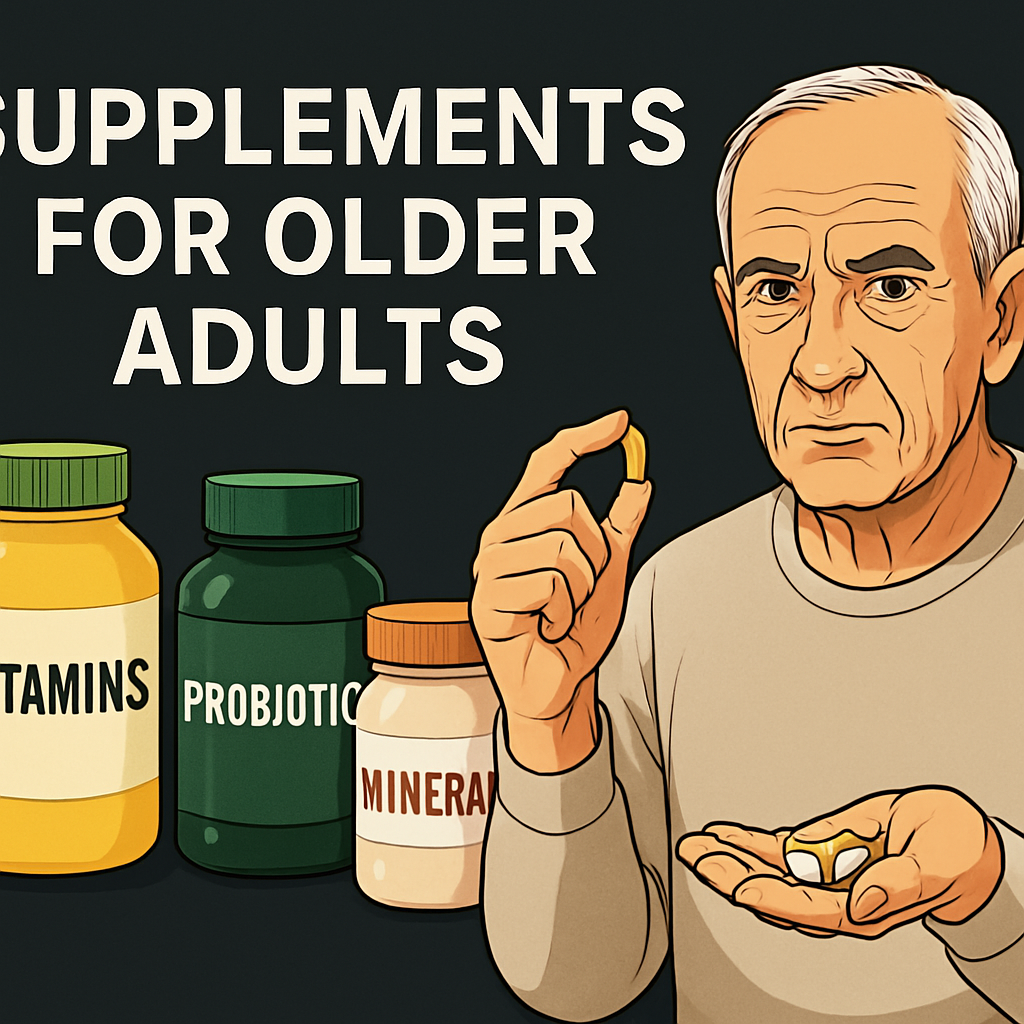
As we age, our nutritional needs change — and the right supplements can help fill the gaps when our bodies struggle to absorb enough from food alone.. That’s why older adults are more likely to be low in key vitamins and minerals, even with a balanced diet.
Whether it’s energy, bone strength, immunity or memory, the right supplements can help support healthy ageing — but only if you take the right ones, in the right way.
Here’s what older adults need to know about taking supplements safely and effectively.
Why Supplement Needs Change with Age
From the age of 60, your body becomes less efficient at absorbing certain nutrients — especially vitamin B12, calcium, and magnesium. You may also produce less stomach acid, which can affect digestion and mineral uptake.
Many older people are also on regular medications, which can interfere with vitamin absorption or increase the need for certain nutrients. On top of that, appetite may decrease — meaning you’re simply not getting as much from food alone.
Vitamins & Minerals to Focus On
 Vitamin D
Vitamin D
- Supports bone strength, immune health, and muscle function
- Absorption decreases with age, and sun exposure is often limited
- Best taken daily (10–25 µg / 400–1000 IU), ideally with food
 Vitamin B12
Vitamin B12
- Supports energy, memory and mood
- Absorption drops significantly after age 50
- Look for methylcobalamin form (under the tongue or spray)
 Calcium
Calcium
- Essential for bones and teeth
- Best taken with vitamin D — but not at the same time as iron
 Magnesium
Magnesium
- Supports sleep, muscles, nerves, and stress response
- Commonly low in older adults due to poor absorption or medications
- Magnesium citrate or glycinate forms are easier on the stomach
 Iron (if low)
Iron (if low)
- Low iron can cause tiredness, shortness of breath, and low mood
- Only supplement if blood tests show a deficiency
- Avoid taking it with calcium or caffeine
Probiotics for Older Adults
A healthy gut becomes more important — and more fragile — with age. Probiotics can help support digestion, reduce bloating, and maintain immune health.
- Look for multi-strain formulas with at least 1 billion CFU
- Consider prebiotic fibre like inulin or FOS to feed good bacteria
- Best taken daily, ideally with food for older adults
Best Ways to Take Supplements Over 60
Older adults often benefit from more bioavailable forms of vitamins — especially those that don’t rely on stomach acid.




What to Watch Out For

More isn’t better. Stick to recommended doses and check if supplements overlap (e.g., multivitamin + magnesium + sleep aid).

Always check with your GP or pharmacist if you take regular medication — calcium, magnesium, and iron can interfere with some drugs.

Avoid anything that promises to reverse ageing, “detox” your body, or boost testosterone levels overnight. If it sounds too good to be true…
Recommended UK Supplements for Over 60s
- BetterYou Vitamin D Oral Spray – Fast absorbing, easy to use
- Cytoplan Methyl B12 – Sublingual and bioavailable
- Wild Nutrition Magnesium – Food-grown, gentle on the gut
- Optibac Probiotics “Every Day” – Multi-strain, trusted UK brand
- Nature’s Best Osteoguard – Combines calcium, D, magnesium & K2 for bones
Final Thoughts
Getting older doesn’t mean slowing down — but it does mean being smarter about nutrition. The right supplements can make a real difference to your energy, focus, bones, sleep, and gut health.
Choose clean, age-appropriate formulas, take them consistently, and always check for interactions if you’re on medication.

Leave a Reply